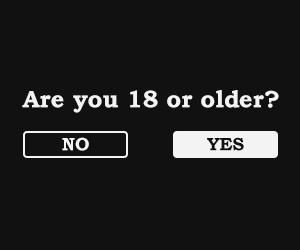Part (Part 5) En Banc cases penned by Justice Hernando
Author: 79467545 • 191 views • 2023-03-06 22:58:18
(Part 5) En Banc cases penned by Justice Hernando; Manila International Ports Terminal v. Philippine Ports Authority
As head of the revolutionary government, she, (President Corazon C. Aquino) was empowered by the 1986 Freedom Constitution to exercise legislative powers, including the power to amend, alter, or repeal the franchise of a public utility.
This legislative prerogative is broad and plenary, stemming from the most essential, insistent, and illimitable of government powers – police power. Thus, courts are [generally] reluctant to interfere with it. [ See Ichong v. Hernandez, 101 Phil. 1155, 1166 (1957) ].
TAKE NOTE:
Limitations of Police Power of the State:
• While the power to repeal a franchise is broad and plenary, it cannot be exercised arbitrarily or at whim. The Constitution expressly limits such power in that its exercise must be necessitated by "common good" or "public interest."
• The exercise of this power is further limited by the due process clause of the Constitution.
REASON:
Franchise is a property right; Due Process of Law.
Thus, while a franchise is still characterized as a special privilege in the sense that the grant thereof is not a demandable right, and that when granted, is subject to the amendment, alteration or repeal by Congress, We have come to recognize franchise as a property right that cannot be revoked or forfeited without due process of law.
Accordingly, in Philippine Long Distance Telephone Co. v. National Telecommunications Commission:
"We did not allow a collateral attack on a franchise since "[a] franchise is a property right and cannot be revoked or forfeited without due process of law:"
There are two components of due process. The first, procedural due process, pertains to the procedures that the government must follow before it deprives a person of life, liberty, or property; the second, substantive due process, to the justification for the denial or restriction on life, liberty, or property.
While due process has no exact definition,80 the standard in determining whether a person was accorded due process is whether the restriction on the person's life, liberty, or property is consistent with fairness, reason, and justice, and free from caprice and arbitrariness. This standard applies both to procedural and substantive due process. As applied to procedural due process, the question to be asked is whether the person was given sufficient notice and opportunity to be heard.83 On the other hand, as applied to substantive due process, the question is whether such deprivation or restriction is necessary and fair to the affected parties.
THE OPERATIVE FACT DOCTRINE:
As a general rule, an unconstitutional act confers no rights; it imposes no duties; it affords no protection; it creates no office; it is inoperative as if it has not been passed at all. An exception to the above rule, however, is the doctrine of operative fact, which applies as a matter of equity and fair play. This doctrine nullifies the effects of an unconstitutional law or an executive act by recognizing that the existence of a statute prior to a determination of unconstitutionality is an operative fact and may have consequences that cannot always be ignored. It applies when a declaration of unconstitutionality will impose an undue burden on those who have relied on the invalid law.
The operative fact doctrine never validates or constitutionalizes an unconstitutional law. Under the operative fact doctrine, the unconstitutional law remains unconstitutional, but the effects of the unconstitutional law, prior to its judicial declaration of nullity, may be left undisturbed as a matter of equity and fair play. In short, the operative fact doctrine affects or modifies only the effects of the unconstitutional law, not the unconstitutional law itself.
G.R. No. 196199. December 07, 2021
Manila International Ports Terminal v. Philippine Ports Authority.
HERNANDO, J.
Read the full decision here:
https://lawphil.net/judjuris/juri2021/dec2021/gr_196199_2021.html
You can help our Pages by clicking the orange box 🟧 at the bottom of our article. We are grateful for your support. ❤️
👇👇👇👇👇👇👇👇👇👇👇👇
To share this notes please copy this URL and send it to your friends
Important :
This text must comply to our Terms and Conditions otherwise it will be removed from our Server.





